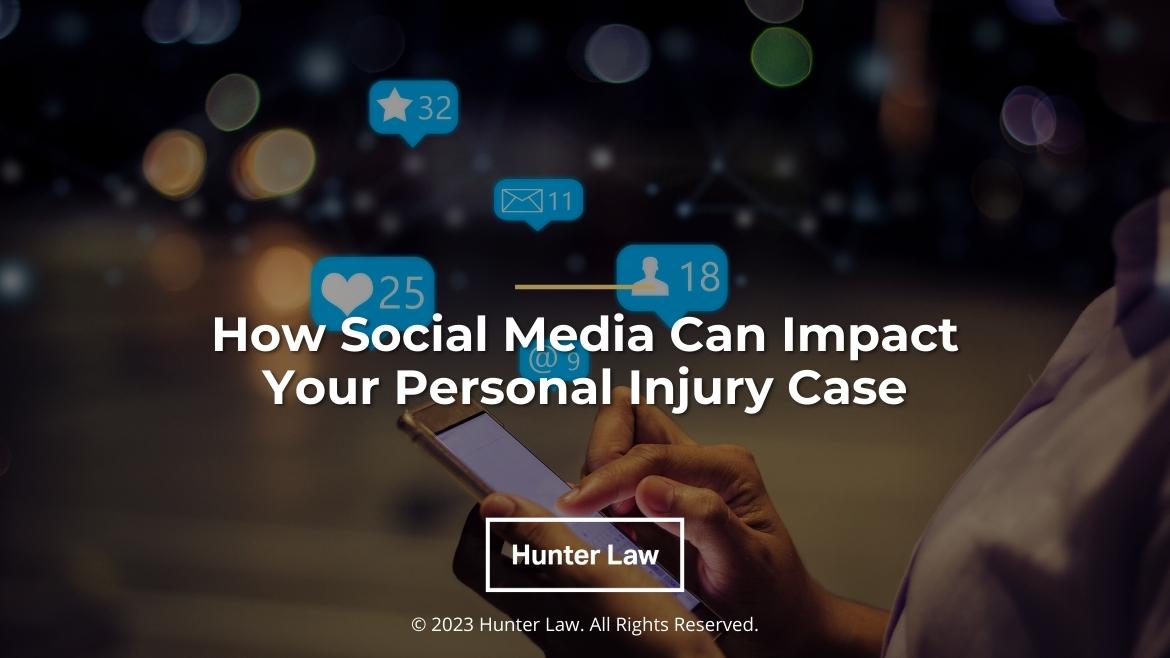Most people know the phrase, “Anything you say may be used against you in a court of law.” But lots of folks don’t realize that the same principle applies to what you “say” online, including on social media platforms. If you want to recover damages for a personal injury, you need to understand how social media can impact your case. Read on to learn more and discover how a personal injury attorney in Tampa can help you strengthen your case through smart social media strategies.
Social Media and Personal Injury Claims
More often than you think, individuals suing an at-fault party for personal injury damages end up compromising their cases and reducing their compensation because they post too frequently or post the wrong type of information on social media.
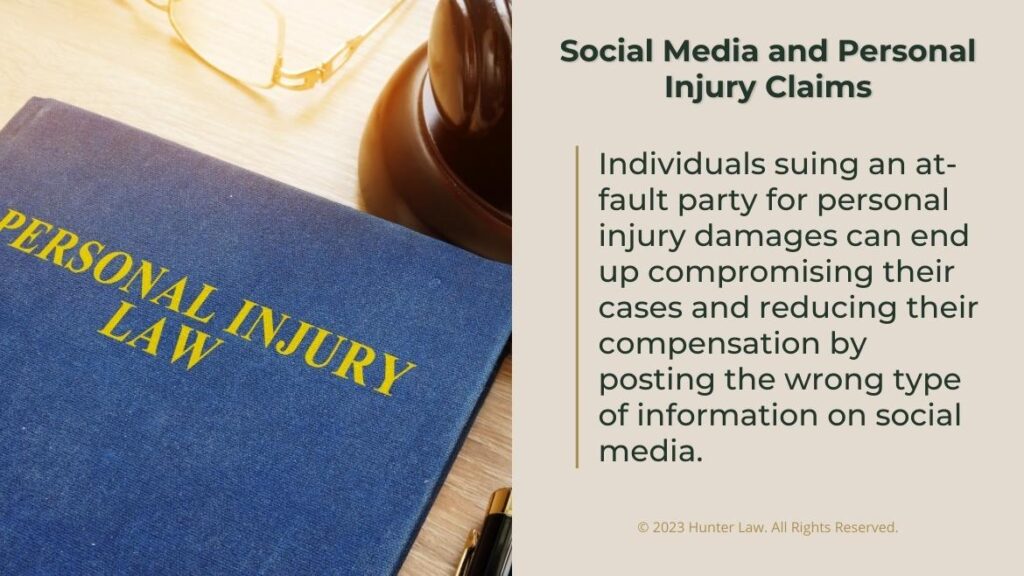
Social media posts and content can count as speech or evidence against your personal injury claim. As an example, imagine that you wish to sue an at-fault driver for serious personal injuries. However, you post about going to a party with friends on social media.
Because your injury allegedly prevents you from walking around easily, the defendant and their attorney can use this information to prove that your injuries aren’t as severe as you claim. Even if you didn’t dance or use your legs at the party, this information still compromises your claim and weakens your position.
This is just one example of how social media can negatively impact your personal injury case. Things have become even more complex due to recent personal injury law changes in Florida for 2023. A personal injury attorney in Tampa can ensure your case is as strong as possible.
Laws About Social Media in Legal Cases
Social media often counts as public speech or action, at least if the information on your social media account isn’t private. Furthermore, social media laws allow courts and judges to order you to make your account public or to reveal social media activity and information, even if it is set to private.
While there are limitations on social media evidence gathering, you should never believe that anything you post on social media is protected. A judge might decide that, by posting something on social media, you gave up the right to its privacy by default.
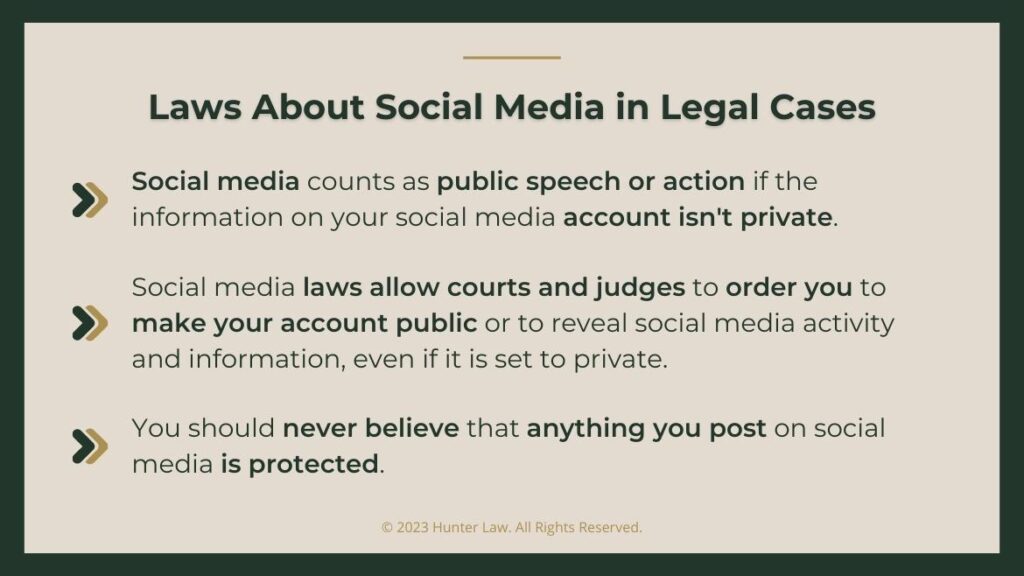
Harm to Your Personal Injury Case
Truth be told, social media can harm to your personal injury case, which is why it’s wise to avoid using it at all during legal proceedings.
Contradictions to Your Claim
For example, social media can lead you to contradict your personal injury claim inadvertently. For instance, if you say that you are unable to carry out daily activities, but there’s a social media post noting how you went to the grocery store, an opposing attorney could use that social media post to show that your injuries aren’t as bad or painful as you claim.
In this way, you’ll weaken your overall case position and minimize the compensation you could receive from the at-fault party.
Implications About Your Physical Condition
Similarly, social media posts can lead to implications about your physical condition that may lead a jury to decide differently than what you want. For example, if you require serious financial assistance because your mobility is very limited, you may need extensive damages from the at-fault party in a personal injury case.
If social media evidence contradicts that claim, though – such as a post from a family member implying that you are “up and about, better than ever” – a jury may decide to award you a smaller amount of money than you need.
Comments from Family and Friends
Harmless comments from family and friends, as described above, can also negatively impact your personal injury case. That’s why people who know you should also avoid speaking about your case or injuries in addition to yourself.
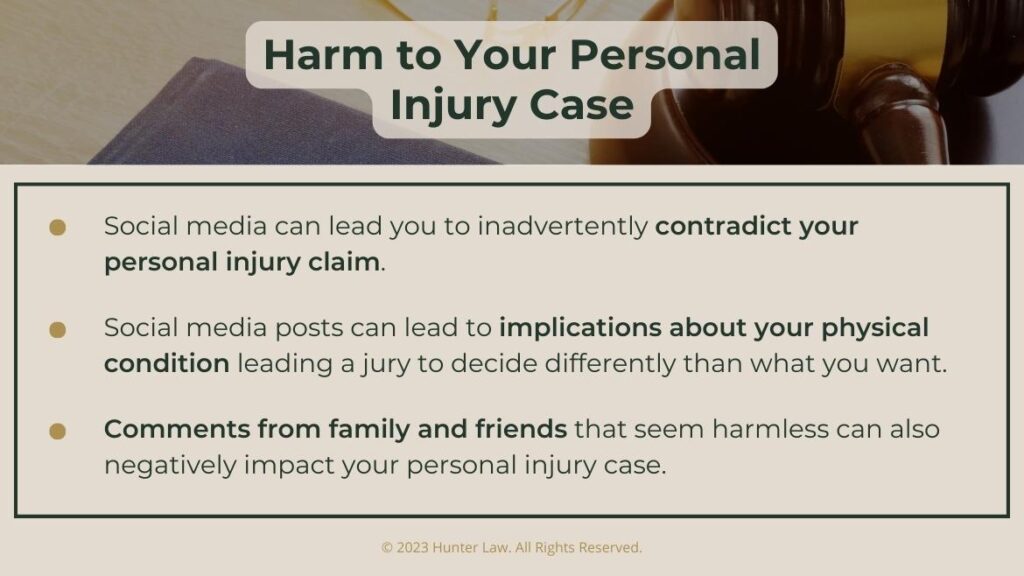
How to Minimize the Impact of Social Media on Your Personal Injury Case
Given the importance of strengthening your personal injury case as much as possible, it is critical to know and implement wise social media usage strategies. Let’s take a closer look.
Don’t Post on Social Media
By far the best way to protect your personal injury case from social media effects is to simply not post at all. You don’t have to make your account private, but don’t post anything new until your personal injury case is fully resolved and you’ve received any damages you’re after.
Your Tampa personal injury lawyer cannot advise you to delete your posts or your profile, as that could be viewed as destruction or “spoliation” of evidence. Instead, they should advise you against any posts online that would potentially involve your physical condition or injuries. Additionally, they can advise you to set your social media to private to avoid it from being easily discovered or commented upon by others.
Note that this also means not posting any photos on social media. Even if you aren’t in the photo, a lawyer can still use any photo of you being somewhere or participating in an activity as evidence of your well-being.
Don’t Comment on Social Media Posts
By the same token, it’s always a wise idea to avoid commenting on any social media posts, no matter how harmless you think your comment might be. A motivated lawyer on the opposing side in a Tampa personal injury case might use a comment against you in a way you can’t anticipate or predict.
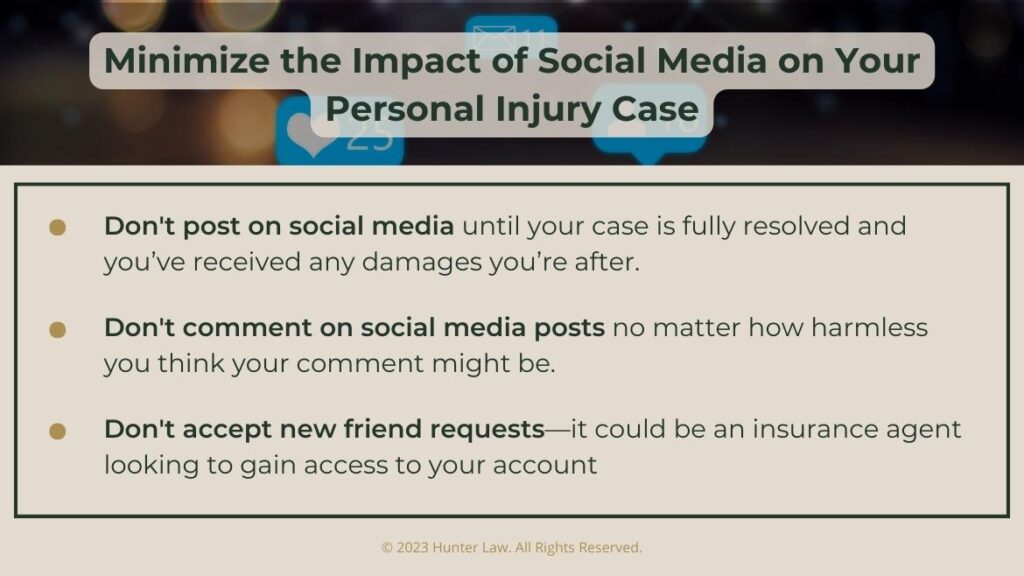
Don’t Accept New Friend Requests
It’s not unheard of for insurance companies to sneakily make friend requests of claimants on social media platforms like Facebook and Instagram. Once they become your friend, an insurance agent may look through your profile, scanning it carefully for evidence that works against your personal injury claim.
With this in mind, don’t accept any new friend requests for the duration of your personal injury case and likely for some time afterward as well. This is the only way to protect yourself.
Even though it may feel unfair for an insurance agent to deceive you in this way, it’s not actually illegal, as your personal injury lawyer in Tampa will explain.
Contact a Personal Injury Attorney in Tampa, Florida
Overall, it’s best to avoid social media entirely to prevent accidental damage to your personal injury case. The great lawyer will be able to advise you on the best way to protect yourself and your case. Contact Hunter Law, P.A. today for a free consultation and more information.


